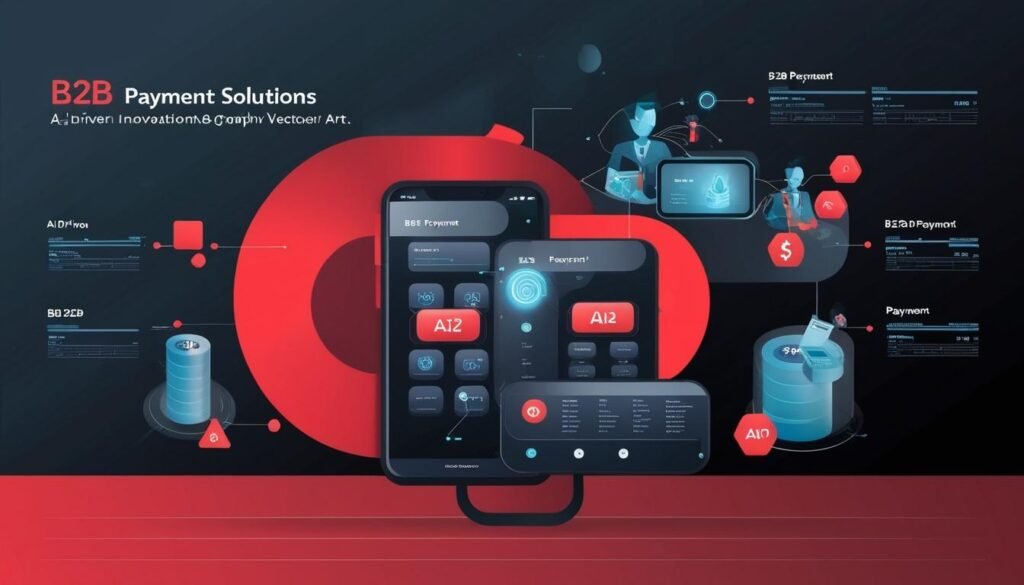The business-to-business payments sector is transforming through technological advancements, with AI and automation playing crucial roles in shaping future payment solutions.
The landscape of business-to-business (B2B) payments is currently experiencing a significant evolution, influenced by the application of technology and automation. As companies strive for faster, more efficient, and secure payment solutions, a variety of players within the market are responding to these growing demands.
Technological advancements, notably in artificial intelligence (AI) and automation, are becoming key drivers within B2B operations. According to PYMNTS, the prevailing trend indicates a movement towards leveraging these technologies to optimise bookkeeping, accounting operations, and B2B payment workflows. The publication highlights that the future leaders in the B2B payments market will be those who adeptly integrate technology, form strategic partnerships, and keenly understand the unique needs associated with B2B transactions.
As businesses navigate the complexities of B2B payments, a notable shift is emerging in payment acceptance policies. Unlike consumer payments that are largely standardised, B2B payments present a fragmented landscape that includes various methods such as checks, wire transfers, ACH payments, and digital wallets. With projections indicating the B2B payments market could surpass $170 trillion by 2030, aligning payment acceptance strategies with organisational goals remains a crucial undertaking for many firms.
One key development within the B2B payment space is the recent announcement from The Clearing House regarding enhancements to its RTP® Network. The new capability will allow individual transactions of up to $10 million, significantly increasing the threshold that supports sectors like real estate and large-scale B2B transactions. This marks a departure from more traditional payment methods, majority of which still rely on checks, which account for nearly 40% of commercial transactions.
In response to the challenges facing traditional payment methods, innovative solutions are emerging. On a continental scale, Nuvei has introduced a blockchain-based payment solution aimed at streamlining cross-border B2B payments throughout Latin America. The new offering enables businesses to utilise both physical and virtual cards for payments made using stablecoins, a rapidly growing segment with a market capitalisation exceeding $190 billion.
The issue of payment transparency and security continues to be relevant, particularly with the continued reliance on checks. In an effort to combat cheque fraud, the Federal Reserve Financial Services recently expanded its FedDetect Duplicate Notification for Check Services to encompass commercial checks, enhancing the oversight capabilities of financial institutions.
As companies progress towards digital transformation, the importance of collaboration is becoming increasingly pertinent. Notable partnerships are becoming key to optimising transactional capabilities. For instance, Intuit has partnered with Dutch payments firm Adyen to assist small and medium-sized businesses (SMBs) in the UK in managing electronic payments more efficiently. Moreover, Briefcase has recently raised $3 million to further develop its AI-powered bookkeeping and accounting automation platform.
Additionally, Clearco is expanding its collaboration with capital marketplace Boundless, crafting a more seamless funding process for eCommerce enterprises. This integration denotes a growing trend where operational efficiency is pursued through innovative partnerships.
As the B2B payments landscape continues to evolve, digital platforms are integral in managing compliance and liquidity challenges. Al Taylor, Senior Vice President at i2c, commented, “Today’s platforms provide financial institutions the ability to create new products and services in days versus months,” highlighting the significant advantages that modern digital infrastructure delivers to businesses.
To summarise, it is evident that as B2B payment operations advance towards a digital-first model, companies focusing on innovation and the integration of various technological tools will likely uncover new growth avenues. By reimagining their payment acceptance and operational strategies, businesses are strategically positioning themselves to navigate the complexities of the current financial landscape.
Source: Noah Wire Services
- https://www.uplead.com/b2b-payment-trends/ – Corroborates the trend of technological advancements in B2B payments, including the use of mobile devices, virtual cards, and real-time payment innovations.
- https://www.agentgpt.io/7-ai-process-automation-techniques-that-are-changing-b2b-operations/ – Supports the role of AI and automation in optimizing B2B operations, including bookkeeping, accounting, and payment workflows.
- https://www.intelemark.com/blog/blockchain-in-secure-b2b-transactions/ – Highlights the use of blockchain technology for secure and transparent B2B transactions, reducing intermediaries and transaction costs.
- https://reviewnprep.com/blog/the-rise-of-digital-wallets-in-b2b-revolutionizing-payment-processes/ – Discusses the increasing adoption of digital wallets in B2B payments, offering greater efficiency, security, and convenience.
- https://www.uplead.com/b2b-payment-trends/ – Mentions the decline of traditional payment methods like checks and the rise of virtual cards and real-time payments.
- https://reviewnprep.com/blog/the-rise-of-digital-wallets-in-b2b-revolutionizing-payment-processes/ – Provides insights into the fragmented landscape of B2B payments, including various methods such as checks, wire transfers, ACH payments, and digital wallets.
- https://www.intelemark.com/blog/blockchain-in-secure-b2b-transactions/ – Explains how blockchain-based solutions are streamlining cross-border B2B payments, enhancing transparency and security.
- https://www.uplead.com/b2b-payment-trends/ – Addresses the issue of payment transparency and security, particularly in the context of checks and the expansion of FedDetect Duplicate Notification for Check Services.
- https://www.agentgpt.io/7-ai-process-automation-techniques-that-are-changing-b2b-operations/ – Highlights the importance of partnerships and collaborations, such as Intuit and Adyen, to optimize transactional capabilities and manage electronic payments efficiently.
- https://reviewnprep.com/blog/the-rise-of-digital-wallets-in-b2b-revolutionizing-payment-processes/ – Emphasizes the role of digital platforms in managing compliance and liquidity challenges, aligning with the digital-first model in B2B payments.
- https://www.intelemark.com/blog/blockchain-in-secure-b2b-transactions/ – Supports the integration of various technological tools, including blockchain, AI, and digital wallets, to uncover new growth avenues in B2B payments.
- https://www.pymnts.com/news/b2b-payments/2024/this-week-in-b2b-innovation-capturing-opportunity-across-an-atypical-landscape/ – Please view link – unable to able to access data


